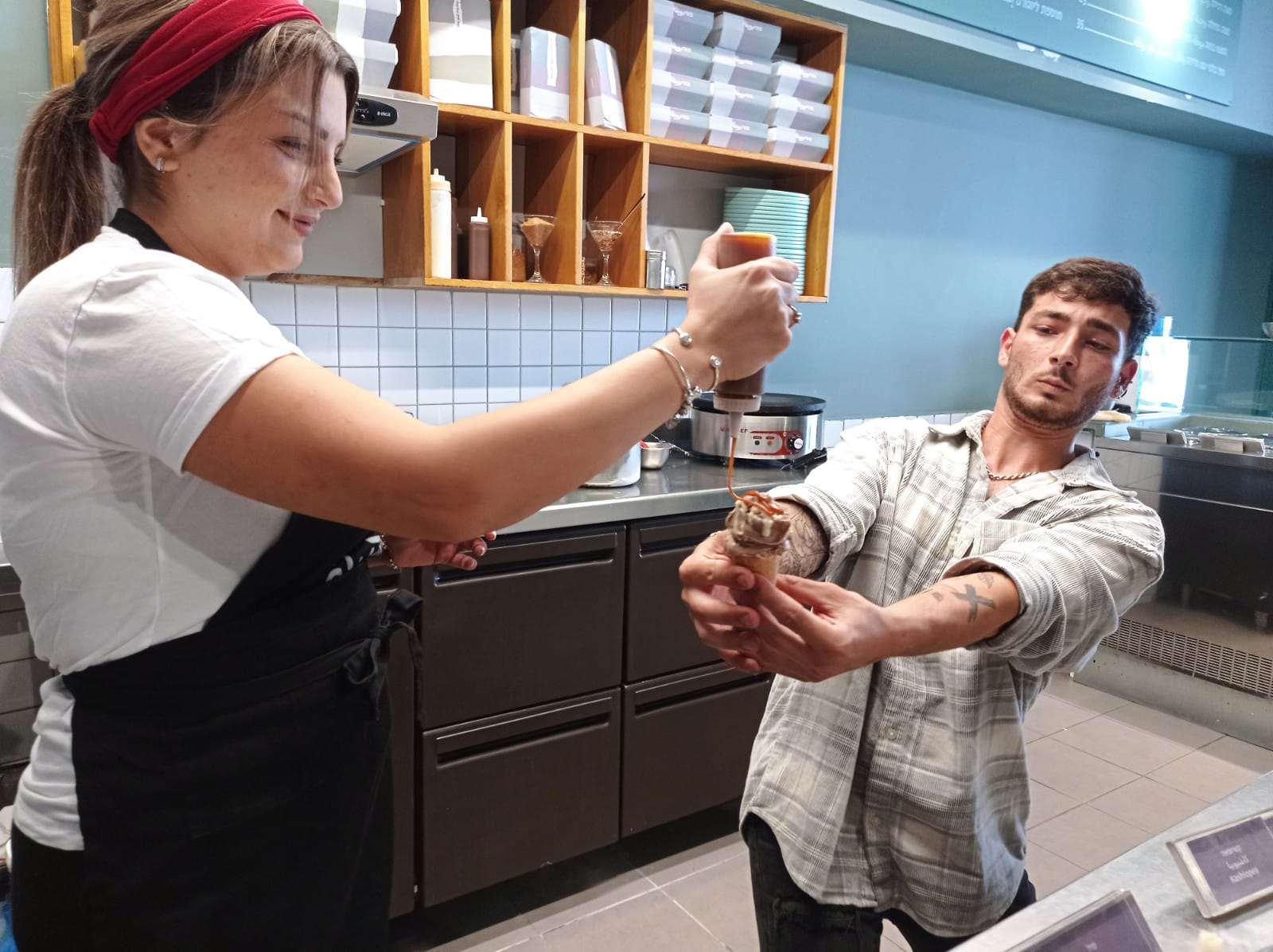
Lifestyle

Eating grasshoppers for Israel: on the bus with TikTok influencers
JTA – A group of fired-up 20-somethings crush together in the aisle of the bus, singing at the top of their lungs, “We’re going on a field trip!”, while pouting for the dozen or so iPhones set to selfie mode.
It’s 07:00, and far too early for this level of pep. But pep is the name of the game in the influencer business, and this group of 16 Israelis have an endless supply to share with their combined following of 32 million social media users around the world.
The bus driver tells the guy with hair the colour of cycling shorts to sit down for the tenth time, while the girl with the immaculately applied contouring asks, once again, when the next “poop break” is. The trip, which took place at the end of June and was paid for by the Jewish National Fund USA (JNF USA), feels more like an end-of-year school outing than a carefully curated excursion aimed at encouraging tourists to “go north”.
Histrionics aside, these influencers are deeply savvy and know exactly just how hammy to behave when it comes to creating a viral TikTok video for any given scenario. For a trip like this, which aims to showcase the culture, coexistence, and culinary scene of Israel’s north, the content is light and glossy. At one stop, a gaggle of tween girls crowds around Eviatar Ozeri, who has garnered close to 10 million followers largely thanks to his hilarious exchanges with his chihuahua, Niki, (who has more than one million followers in her own right).
Ozeri and the rest of the influencers on the bus may very well be Israel’s most advanced weapon in its war of hasbara, the Hebrew term for public diplomacy, the only battlefield where Israel feels it is losing. Harnessing the enthusiasm and the tremendous reach of these digital warriors is supposed to help deliver a message that official Israel has thus far failed to convey – of a cool, peace-loving nation.
A visit to a cross-border tunnel dug by the Lebanese Hezbollah terror group is an excuse for merriment, as the influencers pose for a group reel, flip the bird, and yell, “F–Hezbollah!”
Their daily content is varied and specialised. One posts about no-makeup makeup, another about water-to-wine chemistry experiments, another about girls with guns, but during flare-ups with the Palestinians, their messaging is uniform and usually involves some iteration of Israel’s right to defend itself.
The global value of influencer marketing in 2021 was estimated at $13.8 billion (R2.3 trillion) by Influencer Marketing Hub, and American influencers can reportedly command $20 000 (R337 574) or more for a single promo reel. Yet none in this Israeli crew receives a penny from either JNF USA or the ministry of foreign affairs for their content promoting Israel. They say they feel compelled to do it anyway.
“I started posting [pro-Israel] content out of frustration,” said 20-year-old Guy Rabi, whose 3.1 million followers watch his alter ego, @coolchemistryguy, blow up gummy bears and melt various other substances. “The lies were pissing me off, so I just began reacting to anti-Israel posts.”
Rabi paid no small price for his activism. The top city in Rabi’s following was Tehran. His first story on Israel lost him 20 000 followers in one fell swoop, and death threats have slid into his DMs on more than one occasion.
At 33, Idan Matalon is one of the older of the group’s digital creators, attested to by the fact that he has the most followers on Facebook – the dinosaur of social media platforms. “These days, though, it’s all about TikTok,” he said. “TikTok is the greatest hasbara tool for the Arab world, and all the incitement [against Israel] comes from TikTok. Fighting it is impossible, because there are so few of us and so many of them. Our only strength is that we’re putting out classier content.”
Dekel, whose quirky skincare routines and lack of last name are incongruous with her training as a biomedical engineer, maintains that there’s no reason that reels on butt acne can’t share the same social media real estate as pro-Zionism posts.
The influencers on the JNF USA trip are part of a ministry of foreign affairs initiative called the Israeli Influencers Dream Team. According to the ministry’s senior director for digital strategy and partnerships, Ido Daniel, they wanted to help “fight the good fight” for Israel but didn’t know how.
“We give them the platform, the ability to know better, and to create content that’s as Israel-related as they please,” Daniel said. “We don’t ever tell them what to post.”
But it’s not just crisis management where influencers are seen as an asset. The programme includes briefings, matching Israeli influencers with influencers overseas, and tours around the country, such as the trip to Israel’s north, where JNF USA’s ultimate goal is to attract 300 000 new residents.
The JNF bus arrives in Kiryat Shmona, a working-class city near the Lebanon border, for a tour of Margalit Startup City Galil, venture capitalist Erel Margalit’s food tech centre. The tour provides plenty of Insta fodder, from grasshopper-eating competitions to slurping sessions with straws made from straw.
The next stop is Buza, a boutique ice cream chain, which in the past partnered with Margalit-funded InnovoPro to create vegan ice cream from chickpea protein. The trip to Buza (ice cream in Arabic) is also a chance to showcase Israeli coexistence. Founded by an Arab Muslim and a Jew, the Galiliean ice cream company now has six shops all over Israel.
The Dream Team doesn’t exactly blend in in Kiryat Shmona, and it isn’t long before a group of overexcited Arab schoolchildren swarm them for selfies. At one point, a man with an oversized tattoo on his forearm rolls down his car window to scream with delight at the sight of Orin Julie, an influencer who calls herself the Queen of Guns, and who has more than a passing resemblance to the iconic Tomb Raider character Lara Croft.
At least anecdotally, the exposure benefited Israel’s image. According to Ozeri, it broke stereotypes about Israel and the conflict. The TikToker dedicated a series of stories to a visit at the home of Savta Maha, a naqab-clad Druze woman who serves traditional Druze cuisine (that’s also kosher) – a mashup that he said one Turkish follower deemed “very cool”.
“We’re eating stuffed vine leaves and rosewater malabi and suddenly, my Muslim followers are saying, ‘Hey, you’re eating my food,’” Ozeri said. “It’s entirely new for them.”
Published with permission from jta.org










